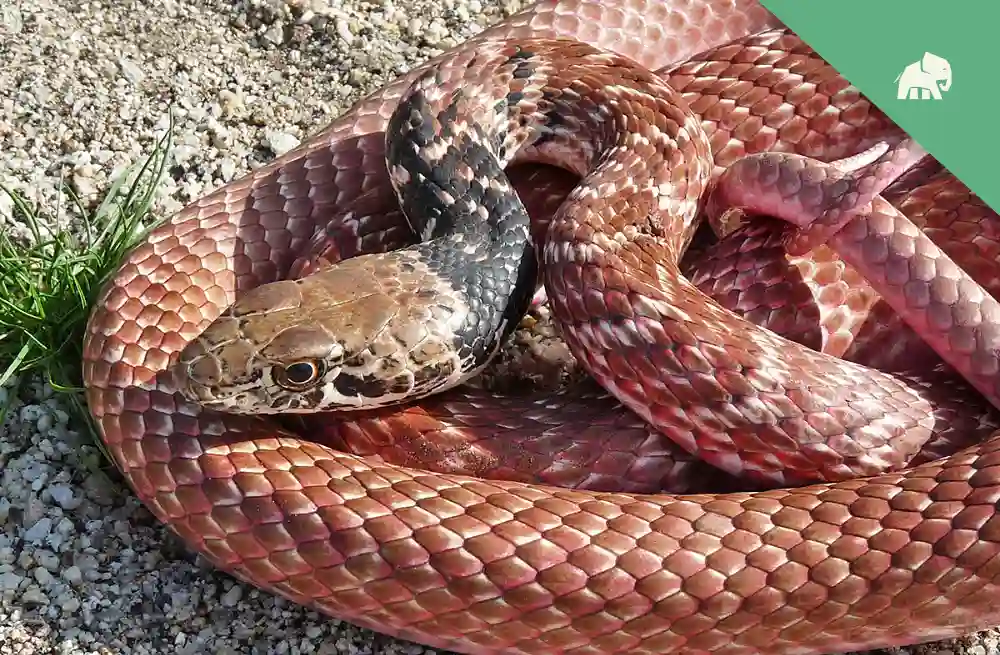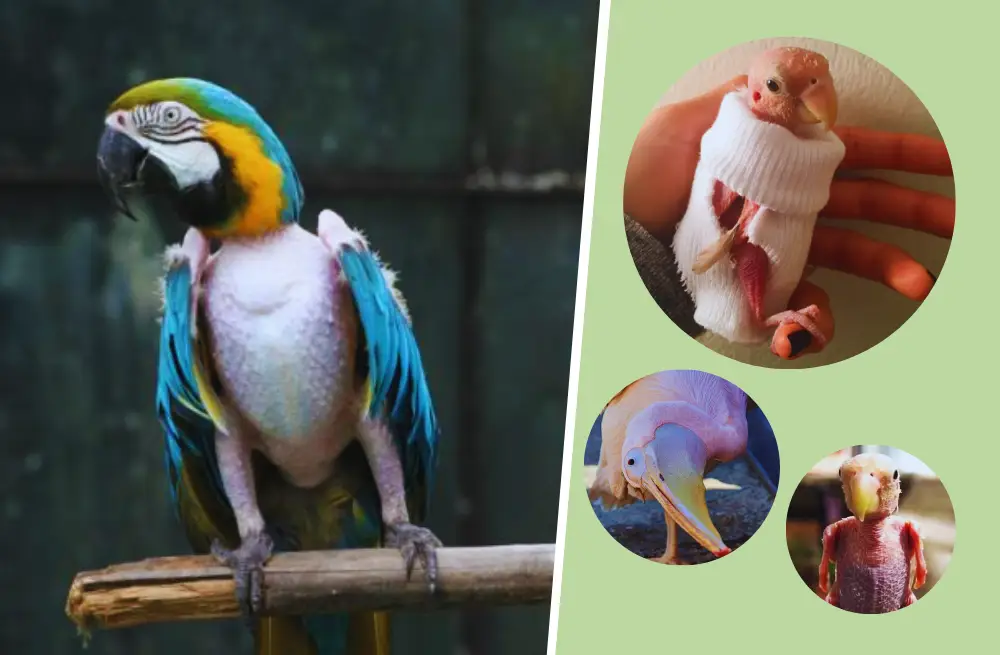Overfeeding is one of the most common mistakes made by aquarium hobbyists. It’s easy to get carried away with feeding your fish, but too much food can harm your aquatic pets and negatively impact the water quality.
If you find yourself in a situation where you’ve overfed your fish, don’t panic. Here are some steps you can take to mitigate the damage and prevent it from happening again in the future.
The Dangers of Overfeeding Fish
Overfeeding fish is a common mistake that many aquarium owners make. We love the interaction of feeding our fish and it’s a part of the attraction of fishkeeping. It’s easy to assume that our fish are hungry when they swim to the top of the tank or come to the glass at the front of the tank, but it’s important to remember that fish have small stomachs and large appetites.
When we overfeed our fish, they will eat too much and leave most of the food, which will then sit in the tank and decompose. This can lead to poor water quality, which can have serious consequences for the health of your fish and the overall ecosystem of the tank.
Excess food will break down into ammonia and nitrite, which are toxic to fish. The buildup of these toxins can cause stress, illness, and even death. In addition, uneaten food can also contribute to an increase in algae growth and the growth of harmful bacteria, which can further harm your fish and the tank.
What to Do When You’ve Overfed Your Fish
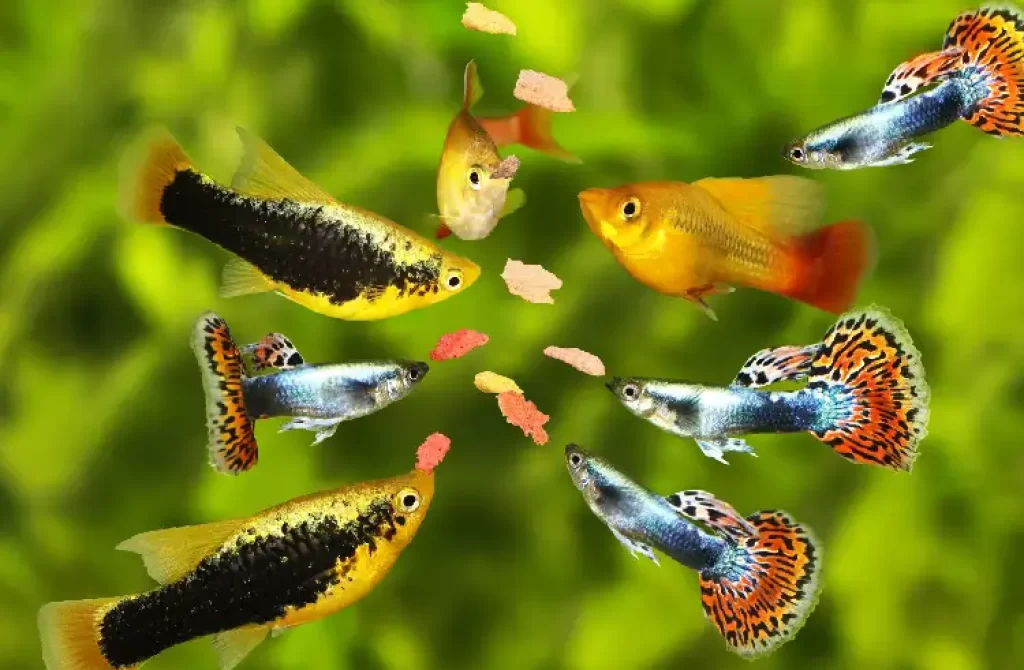
Remove Excess Food
The first step is to remove any uneaten food from the aquarium. Use a fish net or a siphon to remove any visible food particles from the water surface or substrate. This will prevent the food from decomposing and producing harmful bacteria that can harm your fish.
Test Water Quality
Next, test the water quality using a test kit. Overfeeding can cause an increase in ammonia and nitrite levels, which can harm your fish. If the test results show high levels of these chemicals, perform a water change immediately to dilute the levels and restore the water quality.
Adjust Feeding Habits
To prevent overfeeding in the future, adjust your feeding habits. A good rule of thumb is to feed your fish small amounts of food two or three times a day, rather than one large feeding. This will prevent overfeeding and reduce the amount of waste produced by your fish.
Problems that can occur from overfeeding
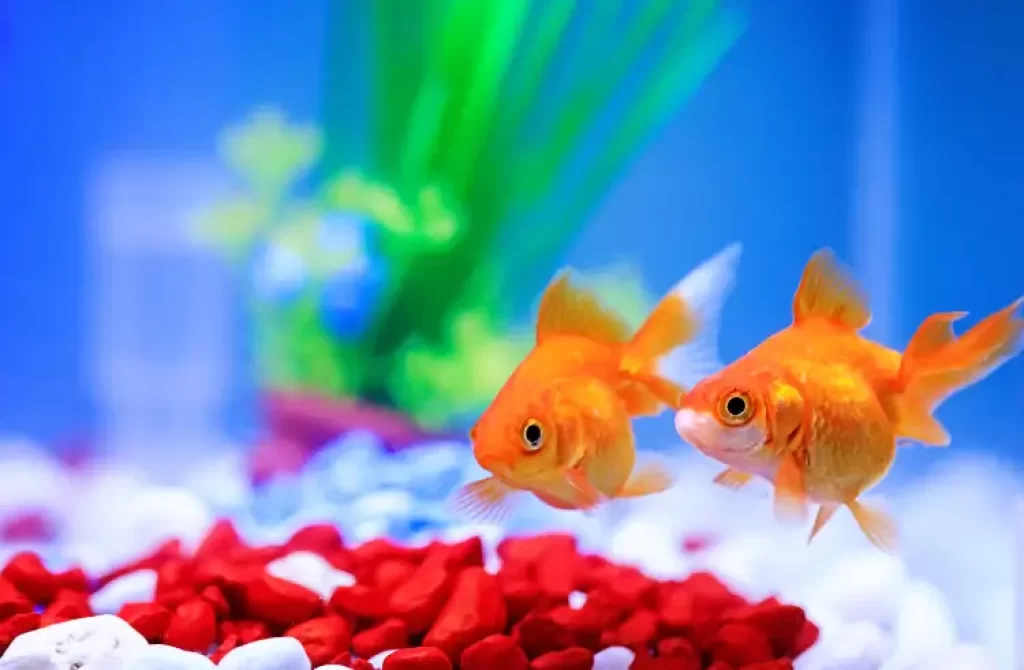
- Water Quality Issues: Overfeeding can lead to an accumulation of uneaten food in the tank, which can rot and release toxins into the water. This can cause harmful bacteria to grow, leading to poor water quality, and can harm the fish.
- Oxygen Depletion: Uneaten food can also consume oxygen as it decomposes, leading to a drop in oxygen levels in the tank. This can lead to suffocation and death of fish, especially if the tank is overcrowded.
- Algae Bloom: Overfeeding can also lead to an overgrowth of algae in the tank. Algae thrive on excess nutrients such as nitrogen and phosphorus, which are present in fish food. Algae bloom can cause the water to become cloudy, reducing visibility in the tank, and can harm the fish.
- Digestive Problems: Overfeeding can cause digestive problems in fish, such as bloating, constipation, and swim bladder disorder. These conditions can make it difficult for fish to swim and breathe properly and can lead to further health issues.
- Increased Fish Waste: Overfeeding can lead to an increase in fish waste, as excess food is not digested and is excreted as waste. This can lead to an accumulation of waste in the tank, which can contribute to water quality issues and can harm the fish.
Best Ways to Avoid Uneaten Fish Food
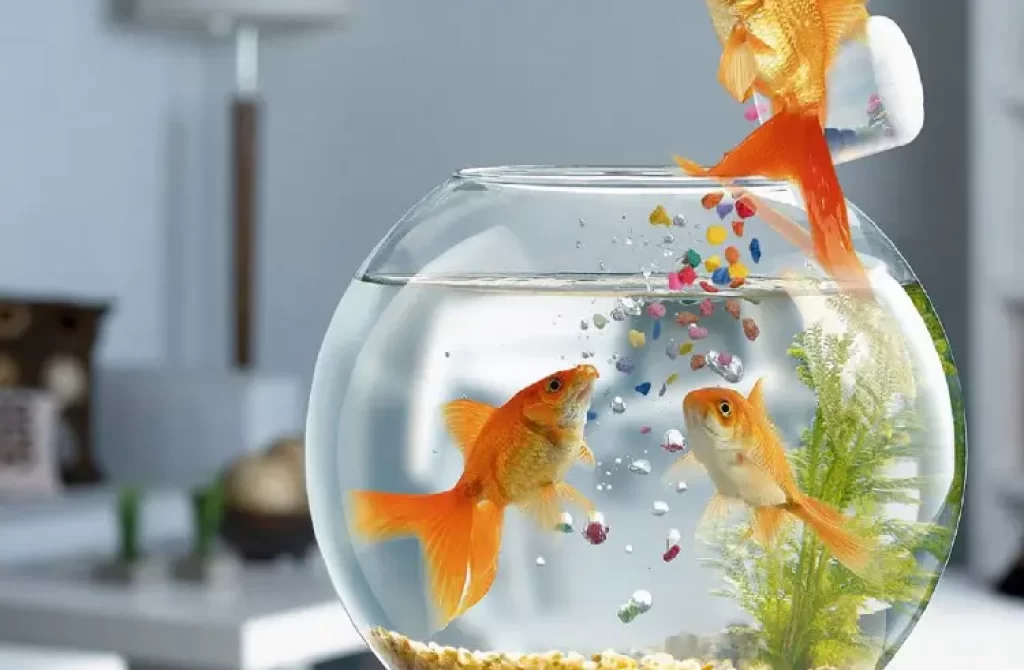
One of the most important aspects of keeping a healthy aquarium is ensuring that your fish receive the right amount of food. Overfeeding can lead to water quality issues and harm your fish, while underfeeding can cause malnutrition and other health problems.
However, feeding your fish isn’t just about the amount of food you provide; it’s also essential to prevent uneaten food from accumulating in the tank. Here are some of the best ways to avoid uneaten fish food and maintain a healthy aquarium environment.
Feed Small Amounts
One of the best ways to avoid uneaten fish food is to feed small amounts of food to your fish. Rather than providing one large meal, consider splitting it into two or three smaller feedings throughout the day. This will ensure that your fish have time to eat all the food you provide, reducing the chances of uneaten food accumulating in the tank.
Choose the Right Type of Food
Another factor to consider when feeding your fish is the type of food you provide. Different fish species have different dietary requirements, so it’s essential to choose the right type of food that meets their nutritional needs.
Some fish species prefer flakes, while others prefer pellets or live food. Research the specific dietary requirements of your fish species and choose the appropriate food to avoid uneaten food.
Don’t Overstock Your Tank
Overstocking your tank can lead to competition for food among your fish, resulting in some fish getting more than their fair share while others are left hungry.
To avoid this, make sure your tank is appropriately sized for the number of fish you have, and avoid overcrowding. This will ensure that each fish has enough space to swim and access to food.
Remove Excess Food
It’s crucial to remove any uneaten food from the tank promptly. If left in the tank, uneaten food can quickly decompose, leading to water quality problems and potential health issues for your fish.
Use a fish net or a siphon to remove any visible food particles from the water surface or substrate after feeding your fish.
You should Consider Automatic Feeders
If you have a busy schedule and can’t feed your fish manually, consider using an automatic feeder. These devices can be set to dispense small amounts of food at specific intervals throughout the day, reducing the risk of overfeeding and preventing uneaten food from accumulating in the tank.
Top tips on aquarium care
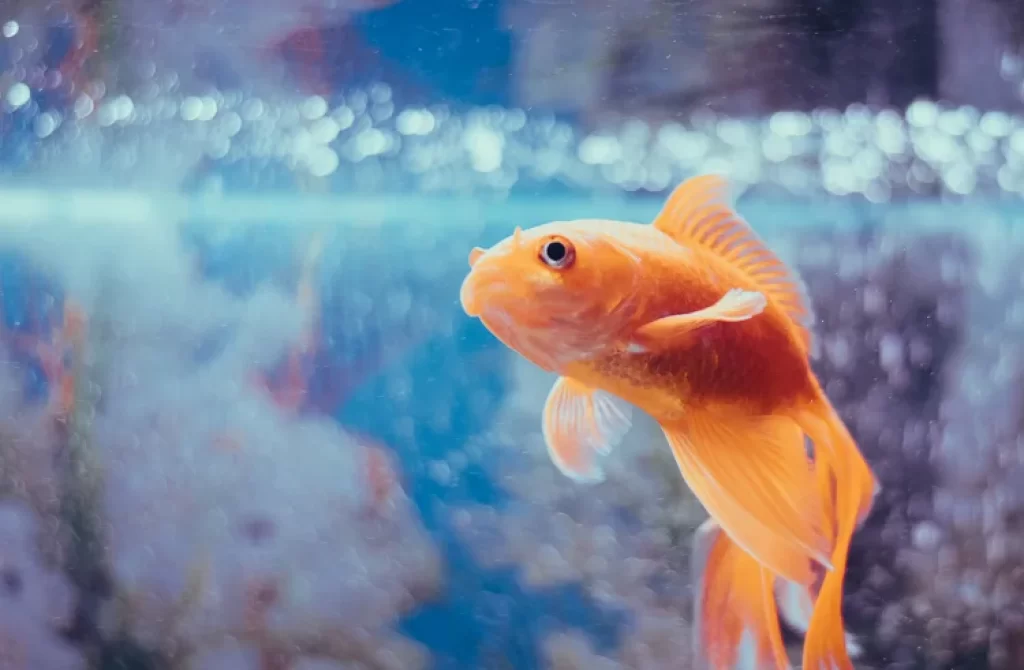
Maintain Water Quality
The most critical aspect of aquarium care is maintaining water quality. Regular water changes and proper filtration are essential for removing waste, chemicals, and harmful bacteria from the tank.
Test the water regularly and adjust the parameters as needed to ensure that your fish and plants thrive.
Feed Your Fish Appropriately
Feed your fish a balanced diet appropriate for their species, age, and activity level. Overfeeding can lead to water quality issues, while underfeeding can cause malnutrition and health problems.
Feed small amounts of food two to three times a day, and remove any uneaten food from the tank promptly.
Choose Compatible Fish Species
When selecting fish species for your aquarium, choose ones that are compatible with each other in terms of size, behavior, and water requirements.
Research the specific needs of each species before adding them to the tank to ensure that they can coexist peacefully.
Provide Adequate Lighting
Lighting is essential for the health and growth of aquatic plants, which provide oxygen and filtration for the tank. Choose a lighting system appropriate for the type of plants you have, and provide a lighting schedule that mimics natural daylight cycles.
Keep the Tank Clean
Regularly clean the tank to remove algae, debris, and waste buildup. Scrub the walls and ornaments, vacuum the substrate, and perform partial water changes every one to two weeks.
This will keep the tank looking clean and healthy, and prevent the buildup of harmful bacteria and chemicals.
Monitor Tank Temperature
Maintain a stable temperature appropriate for your fish and plants. Sudden changes in temperature can stress or harm your aquatic pets, so monitor the temperature regularly and adjust the heater as needed.
Quarantine New Fish
Before adding new fish to the tank, quarantine them in a separate tank for a few weeks to ensure that they are healthy and disease-free. This will prevent the spread of potential illnesses to your existing fish population.
Final thoughts
Overfeeding your fish can be harmful to their health and the overall water quality of your aquarium. If you find yourself in this situation, don’t panic.
Follow these steps to remove excess food, test the water quality, adjust your feeding habits, and consider automatic feeders to prevent overfeeding in the future. By taking these steps, you can ensure the health and happiness of your aquatic pets.
